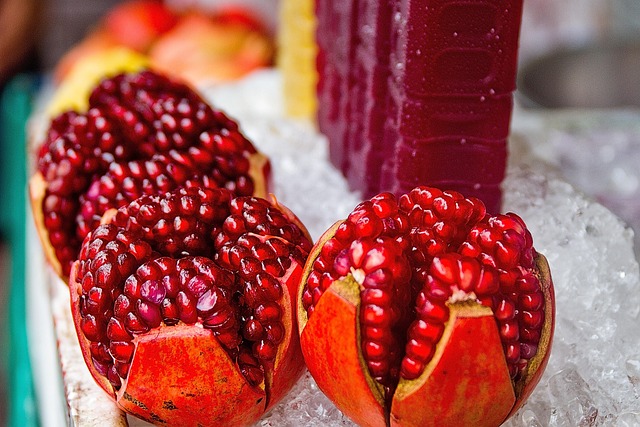When we think of staying hydrated, we often reach for water, sports drinks, or herbal teas. Yet, a quiet, colorful ally quietly thrives in our grocery aisles: hydrating fruits. These natural treasures are not only delicious but also packed with water content, electrolytes, and fiber that help your body maintain optimal fluid balance. By incorporating hydrating fruits into your daily routine, you can boost hydration, support digestion, and enjoy a burst of nutrients without turning to artificial beverages.
The Science Behind Hydrating Fruits
Water is the foundation of bodily fluids, but the source of that water matters. Hydrating fruits contain a high percentage of free water—often between 85% and 95%—making them efficient, nutrient-rich sources of hydration. Beyond the water itself, these fruits provide potassium, magnesium, and sodium, the electrolytes that help regulate nerve signals and muscle contractions. The presence of soluble fiber in many hydrating fruits also aids in slow digestion, sustaining a steady release of water into the bloodstream.
- Water content: 90–95%
- Potassium levels: 200–500 mg per serving
- Magnesium: 10–20 mg per serving
Top Hydrating Fruits for Every Day
Not all fruits are created equal when it comes to hydration, but some stand out for their sheer water volume and nutrient profile. Here’s a quick guide to the fruits that can help you stay refreshed and healthy.
“I never realized how much of a fruit’s water content could be a game changer for hydration—especially after a workout.” – Jane D., Fitness Coach
- Watermelon – A classic summer staple, watermelon contains 92% water and is rich in vitamin C and lycopene.
- Cucumber (with skin) – Though technically a fruit, cucumbers provide 95% water and contain antioxidants like flavonoids.
- Strawberries – With 91% water, strawberries deliver vitamin C and manganese, supporting immune function.
- Oranges – A citrus treasure, oranges offer 87% water and are packed with vitamin C, folate, and potassium.
- Melons (cantaloupe, honeydew) – These melons provide 90% water, beta‑carotene, and a mild sweetness that satisfies cravings.
- Peaches – Containing 89% water, peaches also deliver fiber, vitamin A, and vitamin C.
- Raspberries – While slightly lower in water content (80%), raspberries are fiber‑dense and offer powerful antioxidants.
How to Maximize Hydration from Fruits
Eating hydrating fruits can feel like a passive activity, but certain strategies can amplify their benefits.
- Consume Whole Fruits – Whole fruits retain more fiber and water, which slows digestion and prolongs hydration.
- Pair with Protein or Healthy Fats – Combining hydrating fruits with a protein source or a sprinkle of nuts helps maintain blood sugar levels and supports sustained hydration.
- Seasonal and Local Choices – Fresh, locally grown fruit tends to have higher water content than out‑of‑season produce that has undergone long transportation.
- Cold, Chilled Options – Eating chilled fruit can feel more refreshing and encourages increased intake, especially during hot days.
Hydrating Fruit Recipes for Everyday Life
Turning hydrating fruits into simple meals or snacks can make hydration a tasty habit. Below are three quick ideas that integrate hydrating fruits into your routine.
- Fruit‑Infused Water – Add slices of watermelon, cucumber, or orange to a pitcher of water. The fruit releases natural sugars and electrolytes, making plain water more appealing.
- Salad with Citrus and Melon – Combine diced cantaloupe, orange segments, and a handful of spinach. Toss with a light vinaigrette for a hydrating, nutrient‑rich side dish.
- Frozen Yogurt Pops – Blend strawberries or peaches with Greek yogurt, chill, and pour into popsicle molds. The result is a cooling treat that doubles as a hydration booster.
Hydration, Lifestyle, and Long‑Term Health
Consistent intake of hydrating fruits can influence more than just the immediate need for water. Over time, regular consumption supports a range of health outcomes.
- Weight Management – Hydrating fruits are low in calories yet high in volume, which can help curb hunger without excess caloric intake.
- Kidney Health – Adequate hydration supports kidney filtration, reducing the risk of stone formation and maintaining electrolyte balance.
- Skin Vitality – Water, vitamins, and antioxidants from fruits help maintain skin elasticity, diminish fine lines, and promote a natural glow.
- Digestive Wellness – The fiber in many hydrating fruits aids bowel regularity and fosters a healthy gut microbiome.
Practical Tips for Busy Lives
Integrating hydrating fruits into a hectic schedule may seem daunting, but small adjustments can make a lasting impact.
- Pre‑Cut and Portion – Slice watermelon or cucumber ahead of time and store them in airtight containers for quick grabs.
- Keep a Fruit Bowl Visible – Place a colorful bowl of berries or melon in your kitchen or office area to remind yourself to hydrate.
- Use Fruit as a Sweet Replacement – Swap out sugary snacks for fruit to satisfy cravings while staying hydrated.
- Pack Fruit in Lunch Boxes – A whole peach or a handful of grapes adds texture and hydration to packed lunches.
Beyond Hydration: The Full Spectrum of Benefits
While the primary advantage of hydrating fruits is their water content, they also deliver a wide array of nutrients that support overall wellness.
- Vitamins C and A – Strengthen the immune system, support vision, and act as potent antioxidants.
- Fiber – Helps regulate blood sugar and cholesterol, fostering heart health.
- Phytochemicals – Compounds like lycopene in watermelon or beta‑carotene in cantaloupe provide anti‑inflammatory effects.
- Low Glycemic Index – Most hydrating fruits have a low glycemic load, making them suitable for balanced diets.
Addressing Common Misconceptions
Some people mistakenly avoid fruits because they fear the sugar content. While it’s true that fruits contain natural sugars, the presence of fiber and water keeps blood sugar spikes minimal. Additionally, the hydrating aspect ensures you’re not substituting fruit for more dehydrating foods like salty snacks or processed drinks.
Closing Thoughts on Hydrating Fruits
Hydrating fruits are more than just a tasty snack; they’re a versatile, science‑backed solution to maintaining fluid balance, delivering essential nutrients, and enriching a healthy lifestyle. By selecting fruits with high water content and incorporating them thoughtfully into meals, snacks, and beverages, you can experience immediate refreshment and long‑term health benefits. Next time you think about staying hydrated, remember that a juicy slice of watermelon, a crisp cucumber wedge, or a handful of berries can offer both hydration and vitality—all while satisfying your palate.




